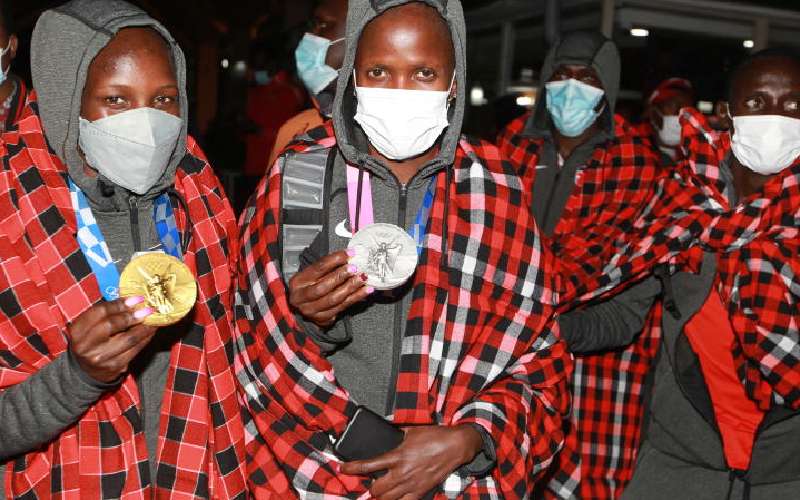×
The Standard e-Paper
Stay Informed, Even Offline

Gold Medalist Peris Chepchirchir, Silver Medalist Brigid Kosgei and Marathoner Lawrence Cherono arrive at JKIA from Tokyo on August 13, 2021.[Jonah Onyango,Standard]
At the beginning of the Tokyo Summer Olympics, the National Olympic Committee issued an advisory against unauthorised use of Olympic properties. A similar advisory was reportedly issued in the US.